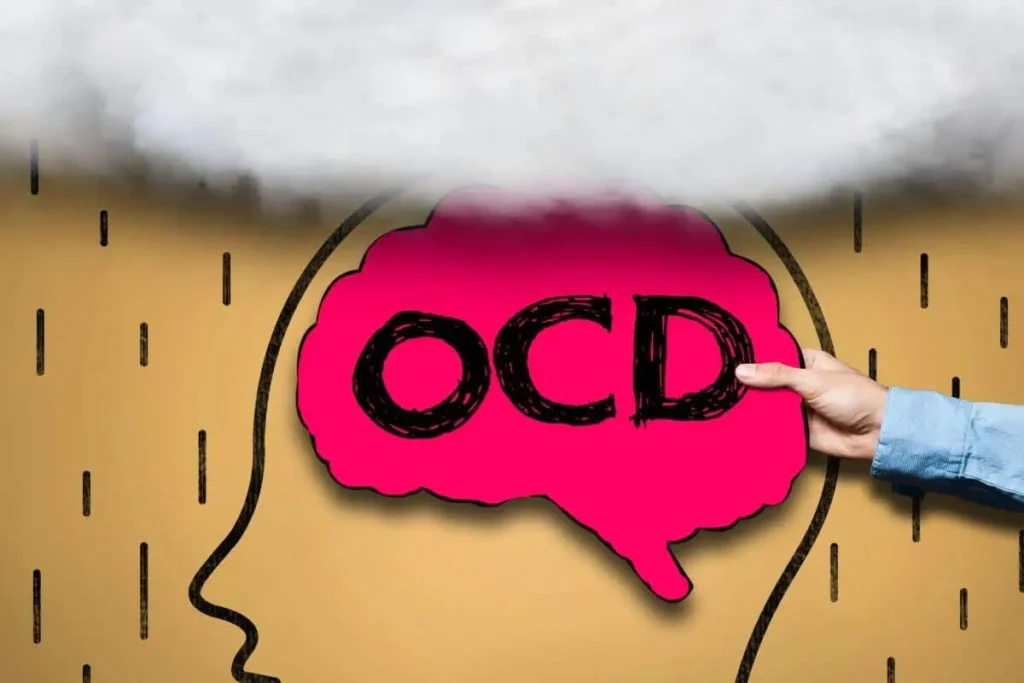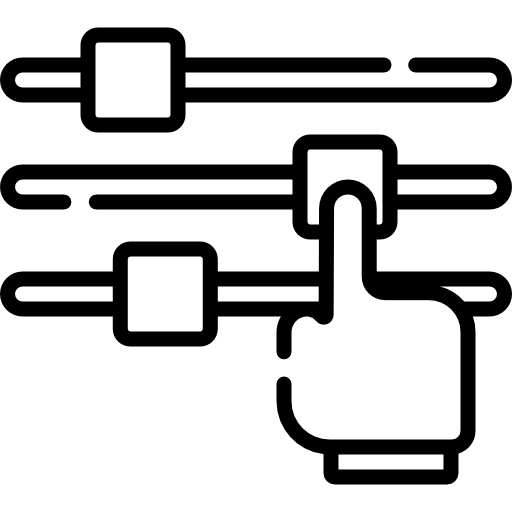
Obsessive-Compulsive-Disorder OCD Psychiatric Treatment in Mesa, AZ
Do you find yourself caught in a cycle of excessive thoughts (obsessions) that lead to repetitive behaviors (compulsions)? You’re not alone. Obsessive-compulsive disorder (OCD) can deeply affect how you behave and feel about certain ideas and situations. But there’s hope. At Foothills Psychiatric Clinic in Mesa, Arizona, you’ll find dedicated professionals ready to help you regain control of your life.
Simon George, a board-certified psychiatric mental health nurse practitioner, and his caring staff specialize in diagnosing and treating OCD, offering personalized care to address your specific needs. OCD is characterized by unreasonable thoughts and fears (obsessions) that often lead to compulsive behaviors. Whether it’s a fear of germs or the need to arrange objects in a specific manner, we’re here to guide you through.
Take the first step towards reclaiming your life. Call our Mesa office or book an appointment online to learn more about OCD and how we can support you on your journey to wellness. Also, to help our local residents in the best way possible, we are offering both Online and Offline Consultations.
OCD Common Questions and Answers
What is OCD- Obsessive Compulsive Disorder
American Psychiatric Association says Obsessive-compulsive disorder (OCD) is a disorder in which people have recurring, unwanted thoughts, ideas, or sensations (obsessions). To get rid of the thoughts, they feel driven to do something repetitively (compulsions). These compulsions often involve behaviors like excessive hand washing, repeated checking, or mental rituals such as counting. OCD is harmless sometimes, but repetitive behaviors can greatly disrupt daily functioning and impair social interactions.
Obsessions in OCD
Recurrent and persistent thoughts, impulses, or images that cause distressing emotions such as anxiety, fear or disgust is called obsession. Most people with OCD try to ease the distress of the obsessional thinking, or to undo the perceived threats, by using compulsions. They may also try to ignore or suppress the obsessions or distract themselves with other activities.
Common obsessional thoughts can be:
– fear of contamination from people or the environment
– religious concerns, frequently involving blasphemous thoughts or fears.
– worrying that something is not complete
– concern with order, symmetry, or precision in extremes
– fear of losing or discarding significant items
Compulsions in OCD
Compulsions refer to repetitive behaviors or mental activities compelled by an individual in reaction to an obsession. These actions gives temporary relief from the distress caused due to these obsessions. Compulsions can range from excessive behaviors directly linked to the obsession, like frequent hand washing driven by a fear of contamination, to actions unrelated to the obsession. In severe instances, these behaviors may consume the individual’s entire day, making it difficult for people suffering with OCD to follow a normal routine.
Compulsive behaviors can look like:
– excessive hand washing, showering, brushing teeth, etc.
– too much cleaning of household items
– arranging things in a particular way
– repeatedly checking locks, switches, appliances, doors, etc.
– habits related to numbers, such as counting, repeating, excessively preferencing, or avoiding certain numbers
– avoiding certain people, places, or situations that cause them distress and trigger obsessions and/or compulsions.
General OCD”s conditions are harmless, but if the conditions get severe and you start occupying your entire day with these behaviors listed above, it is recommended to contact your nearest psychiatric mental healthcare. Foothills Psychiatry in Mesa, Arizona diagnoses and provides treatment and medications for OCD and other related conditions to help you live a stress-free life.
OCD Diagnosis & Treatment

How is OCD Diagnosed?
To find out whether you are suffering from OCD, our psychiatric mental health professionals in Mesa, AZ, does some comprehensive assessments. They will access your thoughts, emotions, feelings, lifestyle habits, any medications you are taking, and medical history.
Foothills Psychiatric Clinic in Mesa also offers pharmacogenomic testing to determine which medicines can help your mental health issues. Based on the assessment results we can prescribe a customized treatment plan for you. Patients with severe OCD conditions may need medicines to stabilize or control their thoughts for living a healthy lifestyle.
How is OCD Treated?
Getting the right treatment for OCD can help patients experience increased quality of life and improved functioning. At Foothills Psychiatric Clinic in Mesa, AZ, our professional OCD specialists believe in providing the right medication and treatment options for improving your mental health and helping you live a fulfilling life. The most common treatment options for OCD patients include Psychotherapy and Medications to control your behavior and way the brain functions.
1 Psychotherapy (Talk Therapy)
OCD and other mental conditions can be treated with the help of psychotherapy, also called talk therapy.
Cognitive Behavioral Therapy (CBT):
CBT is a part of Psychotherapy that is beneficial for individuals suffering from OCD, and other related mental disorders. This approach instructs individuals on alternative cognitive patterns, behaviors, and responses to situations, aiming to reduce feelings of anxiety and fear.
Exposure therapy, a method in CBT, helps treat anxiety by facing fears directly. It encourages people to confront avoided activities. Sometimes, relaxation exercises are included in the treatment plan.
2. Medications
Selective serotonin reuptake inhibitors (SSRIs), commonly used for anxiety and depression, can also help with OCD. Higher doses are often needed for OCD treatment. If one SSRI doesn’t work, another might. It takes about six to twelve weeks for the full effect. Mild to moderate OCD can be treated with either CBT or medication, depending on patient preference and other factors. Combining CBT and SSRIs is often best for severe OCD.
Kindly Note: The medications listed here are for educational and informational uses only. We do not recommend anyone to take these medicines without consulting a psychiatrist or mental health care provider.
3. Lifestyle Changes
Early stages of OCD can be managed by adapting to healthy lifestyle habits. Changes like switching to nutritious food, taking adequate rest, minimizing stress, and maintaining organized to-do lists can all contribute to substantial improvements in overall health.
Foothills Psychiatric Clinic in Mesa, AZ can help overcome and treat OCD by providing tailored solutions based on your conditions and can make changes to your treatment plan according to your unique needs and goals. We do online and offline consultations. Kindly call our office at 480-608-4877 to schedule your appointment.














